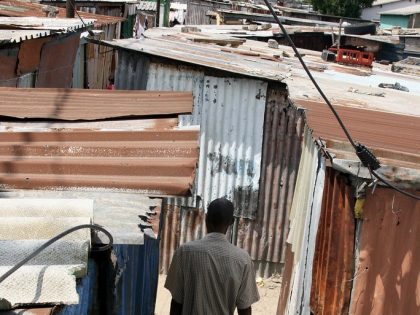
Fighting the pandemic in the global South
On the other side of the pandemic, we must strengthen and build strong working-class movements to challenge imperialism and neocolonialism.

On the other side of the pandemic, we must strengthen and build strong working-class movements to challenge imperialism and neocolonialism.

Burundian refugees in Nakivale Refugee Settlement in Uganda are enacting grassroots responses to COVID-19.

In Sudan's capital, security forces arbitrarily enforce a haphazard lockdown.

Local traditions of crisis management have largely been shed along the path to “development.” The age of COVID-19 is the time to recover them.

Regular Kenyans try to survive the economic fallout from the coronavirus.

Three activists from the Assembly of the Unemployed talk to us about the challenges facing working-class communities in South Africa.

COVID-19 re-affirmed journalism is a public good, yet as newsrooms collapse, journalism is in danger.

How race came to function as fuel to an exploitative economic system. Take the case of South Africa.

The irony of preaching social distancing to those living in close urban dwellings in Lagos exposes the crass nature of class disparities in Nigeria.

The parallels between COVID-19 and the 1910s in Kampala, when the colonial regime used a series of plagues to cut Ugandans out of the capital city.

As the South African ruling class wages a protracted war against the poor and working class, it grows comfortable with the idea that people have more or less accepted the status quo.

Government money, artistic freedom, and integrity in Kenya in the time of COVID-19.

Africans can lead the charge to decolonize the profit-driven biomedical system by challenging European and American claims to prioritized access to the COVID-19 vaccine.

When the usual rules no longer hold, like in a pandemic, we might find inspiration in the collectivities and working principles of artists.

Father's Day reflections for the time of COVID-19.

It will be survival for the fittest when the COVID-19 vaccine arrives. As it stands, relevant international regimes for its distribution are not in Africa’s favor.

The coronavirus shutdown in Ghana exposes the weaknesses and inequities in the country’s education system.

How African immigrants in New York City’s Manhattan borough coped with the COVID-19 pandemic.

Are we capable of rediscovering that each of us belongs to the same species, that we have an indivisible bond with all life?

African intellectuals are calling for a different discussion. Isn’t this the right time to propel changes that have often been postponed?